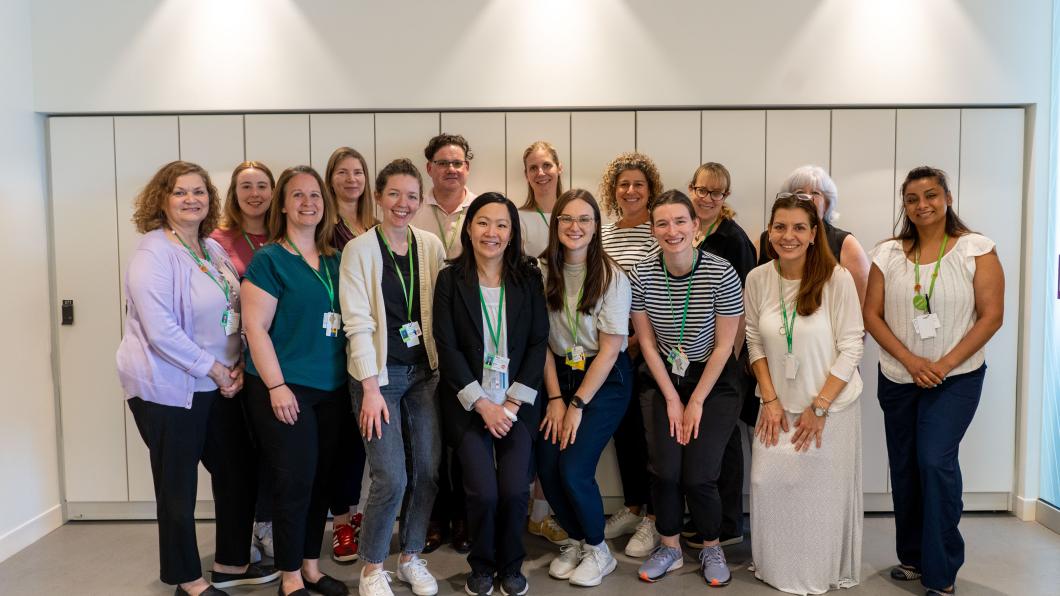
It’s Time to Get Up and Go
Get Up and Go is Canada's only inpatient interdisciplinary pediatric pain program. This year, thanks to increased funding from the Ontario Ministry of Health, the program was able to expand its capacity and empower more teens nationwide to manage persistent and chronic pain.
When youth experience chronic pain it can impact all areas of their lives including their mental health, sleep and appetite, and even their social activities. Holland Bloorview’s Get Up and Go is a holistic pain management program that provides clients with long-term tools for success. The program consists of a two-week inpatient stay followed by a two-week day program that actively supports clients while they apply new strategies in their home setting.
The comprehensive offerings of Get Up and Go make the program unique. The program integrates school, recreational, occupational and physio therapies, alongside daily routines such as maintaining a sleep schedule, healthy eating habits, and more. The interdisciplinary team is constantly evaluating and altering the program to best fit each individual. With their wide range of expertise, the team can use different strategies to co-create a plan that addresses the client’s specific needs and goals.
“We have psychiatry. We'll do family therapy, which is not often seen in other programs,” shares Lori Palozzi (she/her), lead Get Up and Go nurse. “We have music therapy and art therapy, which is also pretty unique. From a psychosocial point of view, we use what's called acceptance and commitment therapy.”
For youth like Rose (he/she/they), who completed the program last year, Get Up and Go was a game-changer in reimagining what a healthy future can look like. “There was so much we learned about chronic pain that we wouldn't have before. When you have it explained to you, makes it so much easier to know what to do.” Rose says that having a better understanding of how pain can affect mental health has made it easier to accept and live with.
Irene Simpson (she/her), the clinical operations manager of Get Up and Go explains that many clients have goals of increasing their socialization, so the program is designed to be completed in pairs. Having a partner with whom they share common ground not only adds a component of companionship to the program but empowers them to practice their social skills as part of their treatment.
“It was just it was so nice to be able to have all the busyness of the day and then you go back, and you hang out with this person who becomes like your best friend and talk about everything,” says Rose.
The program uses Acceptance Commitment Therapy which focuses on working through client’s symptoms and emotions rather than fighting them. “[During the program] it wasn't taken as like, you're in a bad mood so stop being in a bad mood,” explains Rose. “It was like, okay, so what are the steps we can take to get to a better place?”
A highlight for many clients is their time with the therapeutic recreation specialist, where they create strategies to best enjoy their favourite activities. From shopping to horseback riding and mini golf, clients are encouraged to re-engage with their community and ‘practice’ what they’ve learned in the second two weeks of the program. With the support of their care team behind them, after the four weeks clients feel equipped with the tools they need to ‘get up and go.’
For Rose, he finally found physio stretches and exercises that felt manageable, “certain neck stretches and stuff [I learned] get me through the day to day. Or when I am in a bad mood and I am in a lot of pain, now I can just kind of take a step back and be able to go ‘okay, I see what's going on let's get a handle on this.’